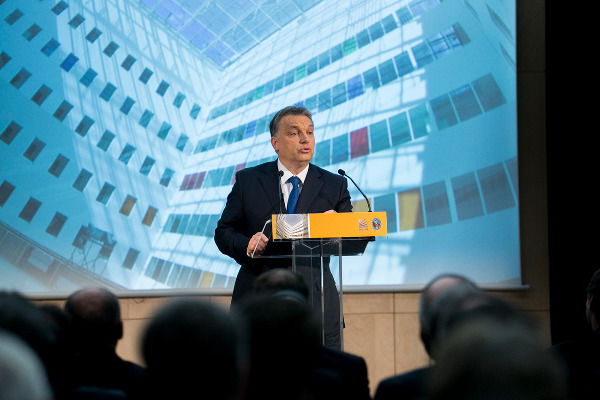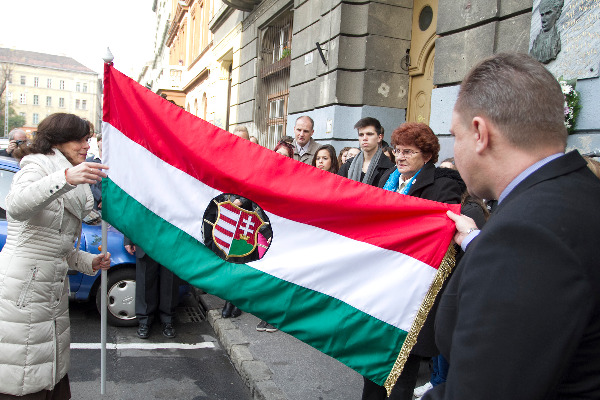| |
|
|
 |
Hungary - the Weakest Energy Link? - by Viktor Orbán
|
After months of hesitation and opaque communications, the Socialist-led Hungarian government seems to have opted in favour of the Russian Blue Stream gas pipeline project, which Prime Minister Ferenc Gyurcsány says is "backed by a very strong will and a very strong organisational power". |
Created: 28th September, 2007 14:59 | Last updated: 8th November, 2007 19:59 |
 print print
|
 send send
|
|
|
|

In a recent interview with the International Herald Tribune he said that the EU's alternative Nabucco project - Hungary, it should be noted, is a member of the consortium - "has been a long dream and an old plan". But added: "We don't need dreams. We need projects. You can only heat apartments with gas and not with dreams."
Just a few days later, Gyurcsány made a high-profile visit to Moscow. Energy issues were high on the agenda of his meeting with President Vladimir Putin, according to press reports, though the Hungarian prime minister played this down, insisting unconvincingly that "co-operation in the food industry" had been the main purpose of his trip.
By giving the green light to Blue Stream (even if no formal decision has yet been announced) Hungary has not only delivered a blow to the EU's evolving common energy policy, but boosted Russian attempts to take over the European energy market.
The Russian state-owned giant Gazprom is not a genuine market actor at all. Its main purpose appears to be the pursuit of geopolitical positions in downstream assets rather than maintaining upstream infrastructure. This impression is reinforced by the way Russia is increasingly using hydrocarbons as a political weapon against other countries, with scant or no respect for foreign investors' rights in its own energy sector.
Given rapidly rising demand projections and Europe's own depleting sources, all of this raises obvious questions about security of supply. Nor can such concerns be dismissed as obsolete Russophobia.
Let us be clear. No sane politician has ever called for - nor will call for - excluding Russia from the European energy market. Geographically, Russia is a natural energy partner. But we are convinced that healthy competition is a conditio sine qua non for security of supply and is in the best interests of European consumers.
Europe must therefore diversify both the sources and transport routes for imported natural gas. The planned Nabucco pipeline is a designated key project in this respect. It enjoys the EU's political and financial backing, a position reaffirmed by the European Council.
This is something the Hungarian government knows perfectly well - which explains why, after the international uproar caused by the prime minister's comments in the IHT interview, communications on the available energy options have gone blurred again.
What such obfuscation really means, evidently, is that the government has opted for Blue Stream.
Gyurcsány's comments came only a week after the European Council in Brussels (8-9 March), a meeting which aimed to demonstrate Europe's will to speak as one voice on energy matters. The Hungarian government's commitment to this has been, at best, lacklustre, as it demonstrated at the summit.
Prior to Berlin, the environment minister spoke in favour of the strict Commission proposals. But right at the beginning of the summit the prime minister sought to block a legally binding target on renewables.
We in the opposition Fidesz party welcome the legally binding target for renewable energies in the energy mix, and the decision to allow member states to decide for themselves how each will contribute to meeting the overall 20% level by 2020.
The Brussels summit is an important step towards an eventual common energy policy for the European Union and the long-term benefits of investment into diversification are obvious for all to see.
But further progress is needed on other related key issues, above all on ownership unbundling in the spheres of energy supply and transmission.
[The article appeared in the European Voice, Vol.13, No.12, 29 March, 2007, and can be read here: http://www.europeanvoice.com/archive/article.asp?id=27694]
fidesz.hu
|
 |
|
Jelenleg nincs információ
Tartsa a kurzort egy dátum fölé az aznapi programok- ért. Kattintson egy napra a részletekért.
Jelenleg nincs erre a napra vonatkozó információ
Keresse meg irányítószám alapján az Önhöz legközelebb működő választókerületi irodát!
|
|
 több
több


 több
több
 Az MTA Természettudományi Kutatóközpont új épületének átadása
Az MTA Természettudományi Kutatóközpont új épületének átadása
 Megemlékezés Gérecz Attilára
Megemlékezés Gérecz Attilára
 több
több
 több
több




























